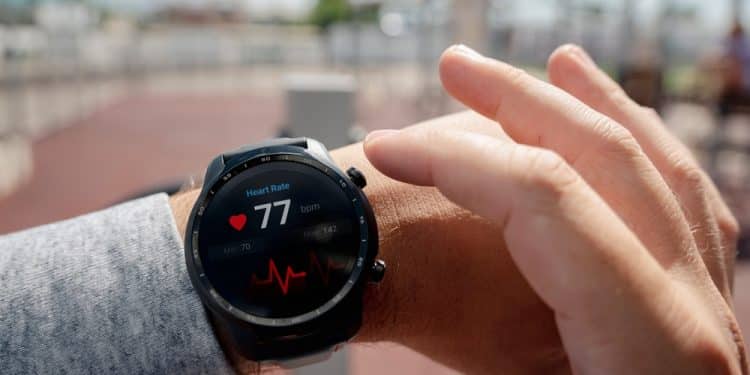Fitness trackers are everywhere. From sleek wristbands to smartwatches loaded with features, it seems like everyone is counting steps, logging calories, and tracking sleep. These gadgets promise better health, more motivation, and smarter habits. But is the hype real—or just really good marketing?
The Fitness Tracker Truth is this: while they can be helpful in some ways, they’re not always the best choice for long-term health or meaningful progress. In fact, they might be holding you back more than helping you. Here’s what you need to know before you put all your trust in that glowing wristband. Break with fitness myths that are not helping you on your journey.
The Allure of Data (and Why It Can Backfire)
Let’s face it—data is addictive. Seeing your heart rate in real-time, hitting a 10,000-step goal, or closing all your “activity rings” feels satisfying. Fitness trackers tap into our love of gamification. You get a small reward, a digital badge, or a buzz on your wrist—and it feels like you’re crushing it.
But here’s the Fitness Tracker Truth: that constant data flow can backfire. Instead of listening to your body, you start listening to your device. You might push yourself to hit goals you don’t need, or feel bad for resting when your body actually needs a break. You begin to measure your worth by numbers on a screen instead of how you truly feel.
Tracking can be motivating—but it can also be misleading.
Step Goals Aren’t One-Size-Fits-All
The 10,000-step rule is a classic example of arbitrary fitness advice. It wasn’t born from medical research—it was actually part of a marketing campaign for a Japanese pedometer in the 1960s.
For some, 10,000 steps is too much. For others, it’s not enough. Your ideal level of movement depends on your lifestyle, your health, and your goals. But fitness trackers don’t account for that. They apply the same goal to everyone, regardless of context.
Here’s the Fitness Tracker Truth: blindly chasing steps won’t make you healthier. In fact, walking just 6,000 brisk steps a day may provide the same cardiovascular benefits as pushing for 10,000. The key is movement quality, not just quantity.

Inaccuracy Is a Real Problem
You’d think a device on your wrist could track your activity with surgical precision, but most fitness trackers have limitations. Step counts can be thrown off by bumpy roads, typing, or arm movements. Heart rate sensors struggle during high-intensity workouts. Sleep tracking often mistakes lying still for actual rest.
And calorie tracking? Let’s not even go there. It’s often wildly off.
That’s the Fitness Tracker Truth no one likes to admit: these gadgets give you estimates, not facts. They’re helpful for general trends, but not reliable enough to guide serious training or nutrition decisions.
If you’re making health choices based on that data—like eating more because your tracker says you burned 700 calories—you could be sabotaging your goals.
Obsession Over Progress, Not Process
One of the biggest hidden dangers of fitness trackers is that they can pull your focus away from why you’re working out in the first place. You start exercising to “close rings” or hit streaks, not because you enjoy movement or want to improve your health.
This shift turns fitness into a numbers game. You begin to worry more about how many steps you got today than how your body feels or how much energy you have.
Here’s the uncomfortable Fitness Tracker Truth: many users report feeling anxious, guilty, or disappointed when they miss a goal—even if they had a great workout or needed a rest day. That’s not healthy motivation. That’s pressure disguised as progress.
They Don’t Account for Context
Did you walk 8,000 steps while carrying groceries uphill in the rain? Or did you pace slowly around the kitchen while scrolling your phone?
Your fitness tracker doesn’t know. It treats all steps the same. It also doesn’t know if you’re stressed, sick, or sleep-deprived. It just wants you to hit the target.
But human bodies are complex. True health takes into account how you’re feeling mentally and emotionally, not just how many steps you’ve taken.
That’s another key part of the Fitness Tracker Truth: they simplify something that’s deeply nuanced. They’re tools—not coaches, not doctors, and certainly not perfect.

Better Alternatives to Consider
So if fitness trackers aren’t the holy grail of health, what is? The answer isn’t another gadget—it’s a mindset shift.
Here are a few alternatives that may work better for long-term well-being:
1. Body Awareness
Learn to listen to your body instead of your device. Are you tired? Sore? Energized? Pay attention to how your body responds to different types of workouts and rest. Journaling how you feel after workouts can build better intuition than any smartwatch ever could.
2. Habit-Based Goals
Instead of tracking everything, focus on small, sustainable habits. Try things like:
- “Stretch every morning for 5 minutes”
- “Go for a walk after lunch”
- “Strength train 3 times a week”
These kinds of goals shift your focus to actions—not numbers—and are easier to maintain without external pressure.
3. Use Trackers as Tools, Not Bosses
If you still like your fitness tracker, that’s okay! Just use it as one part of your overall health picture. Let it highlight trends, not dictate rules. If you miss a goal or take a break, that’s not failure—it’s flexibility.
When They Can Be Useful
To be fair, fitness trackers aren’t all bad. For some people, they provide a useful structure or serve as an entry point into healthier habits. They can be particularly helpful for:
- Beginners who need accountability
- Desk workers looking to move more during the day
- Sleep tracking over time (if paired with other awareness tools)
- Heart rate zone training, especially for endurance athletes
The key is to use them mindfully. Know when to look at the numbers—and when to put the device down.
Don’t Let the Device Define You
The real Fitness Tracker Truth is that health isn’t something you can measure in steps, calories, or sleep hours alone. It’s about how you feel in your body, how much energy you have, how well you move, and whether you’re enjoying the process.
Fitness trackers can provide some insights, but they aren’t the whole picture. And in some cases, they can actually create stress, confusion, and unhealthy habits.
So before you get too attached to your device—or frustrated by it—take a step back. Ask yourself:
- “Is this helping me feel better?”
- “Am I more in tune with my body—or just more distracted by numbers?”
- “Would I still move today if the tracker wasn’t watching?”
If the answer is no, it might be time to reconsider your relationship with your wearable tech.
In the end, no gadget knows you better than you do.





